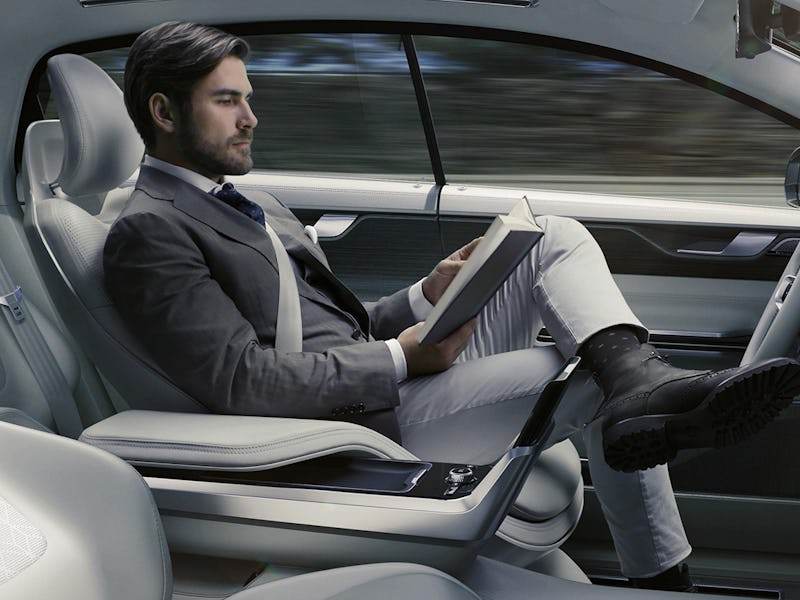Volvo to Let 100 Families Test Safety of Autonomous Cars on British Roads
Driverless cars hit London.

Volvo will be providing fully autonomous vehicles to British families for live testing on the streets of London as soon as 2018. The Swedish car manufacturer announced a similar 100-car program in China on April 7, but the British plan may offer a window in the widespread marketability of autonomous cars. By emphasizing testing with families, Volvo is highlighting that autonomous driving may be new, but most, if not all, evidence suggests it would dramatically improve safety on the road.
Autonomous driving cars today could face up to 30 percent fewer accidents than those driving regular cars, according to independent research cited by Volvo. Since 90 percent of crashes currently are the result of driver error or inattention, the safety value of AD cars will only grow as more consumers adopt the technology. AD cars may still be involved in a certain number of crashes, but those collisions will likely be less severe due to preventative measures taken by the onboard computer.
“Research in the U.S. by NHTSA predicts that by 2035, as a result of autonomous and connected cars, crashes will be reduced by 80 percent,” Peter Shaw, chief executive at Thatcham Research, a partner of Volvo in the test, is quoted as saying in a release about the British test drive program.
Drive Me London will place 100 autonomous driving cars in the hands of families in 2018.
The car manufacturer has already waded into the AD field, infusing some of its current cars with semi-autonomous technology. Drive Me London also includes a plan to expand the use of semi-autonomous driving cars in the city through 2017. The slow but steady roll out of AD technology seems designed to prep the public for the eventual commercial introduction of AD cars.
Volvo has not committed to any specific timetable for the release of AD cars. One major issue is that the international car company needs to wait until enough countries establish legal and infrastructure frameworks for the cars that would justify the launch of a new line of cars. So if Volvo’s own experts are predicting AD cars will be on the road as early as 2021, don’t expect Volvo itself to be too far behind.
“Vehicle manufacturers are predicting that highly autonomous vehicles, capable of allowing the driver to drop ‘out of the loop’ for certain sections of their journey, will be available from around 2021,” Shaw says.
In 2018, Volvo be the only car manufacturer with fully autonomous cars on the streets of London.
Volvo’s commitment to putting AD cars in the hands of London families is a tremendous vote of confidence in its current systems. These cars will likely be some of the only AD cars in all of Britain actually on the road when they hit the streets in 2018. Volvo is hardly known for taking risks with its drivers’ security, so the experiment may prove to be a turning point for the public perception of AD cars.
It’s also a good sign for Volvo that the British government can hardly contain its excitement that London gets to host the test drive.
“Such advances in technology prove the fourth industrial revolution is just around the corner and our determination to be at the forefront is why we are attracting top names from across the globe for real-world testing,” Sajid Javid, UK Secretary of State for Business, Innovation and Skills, says for the Volvo press release.
Volvo may be better known for its family-friendly vehicles than its technological marvels, but that’s exactly what is striking about the experiment. Driverless cars have gone main-street.